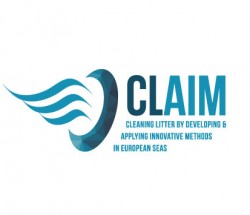Ways to reduce ocean plastic pollution is the focus of a workshop hosted by European experts

Experts from the Horizon 2020 European Union project CLAIM (Cleaning marine Litter by developing and Applying Innovative Methods, No. 774586) will present to participants the hazards of micro and macro litter and latest research for handling marine pollution. The workshop will also introduce advanced electron microscopy techniques for characterising microplastics applied by experts of the Center for Electron Microscopy of Materials at KTH Royal Institute of Technology.
Only about 10 percent of plastics worldwide get recycled. The majority of plastics pollute our environment every day, says Joydeep Dutta, Professor in Functional Materials at KTH.
“Microplastics are a particularly dangerous issue in plastic waste. It’s difficult to monitor the huge impacts on the ecosystems and human health, owing to their small sizes,” Dutta says.
The presence and accumulation of plastic debris in the environment has seen a substantial increase with global production of plastics increasing 20-fold in the last 50 years. Microplastics are proven to be harmful to humans and more than 180 marine species, including plankton, fish, sea birds and marine mammals.
Despite being widely recognised as a major environmental problem, there is a lack of robust methods that offer essential and integrated solutions. What’s needed is forethought and technological innovation, Dutta says.
Tackling plastic pollution at its source is the most effective way to reduce marine litter according to the Institute for European Environmental Policy, which underscores the need for proactive solutions that take aim at microplastic distribution and mitigation.
“The media has been reporting on the hazards of plastic pollution recently, and it’s being debated extensively around the world,” Dutta says. “This workshop intends to put into perspective scientific understanding that would be beneficial for researchers to planners who are concerned about micro and macro plastic litter.”
The workshop is free to attend.
See theh program at the end of this announcement: https://www.alphagalileo.org/en-gb/Item-Display/ItemId/163307?returnurl=https://www.alphagalileo.org/en-gb/Item-Display/ItemId/163307
Keywords
marine, mission ocean, seas, oceans, marine litter, clean seas, plastic pollution, microplastics


